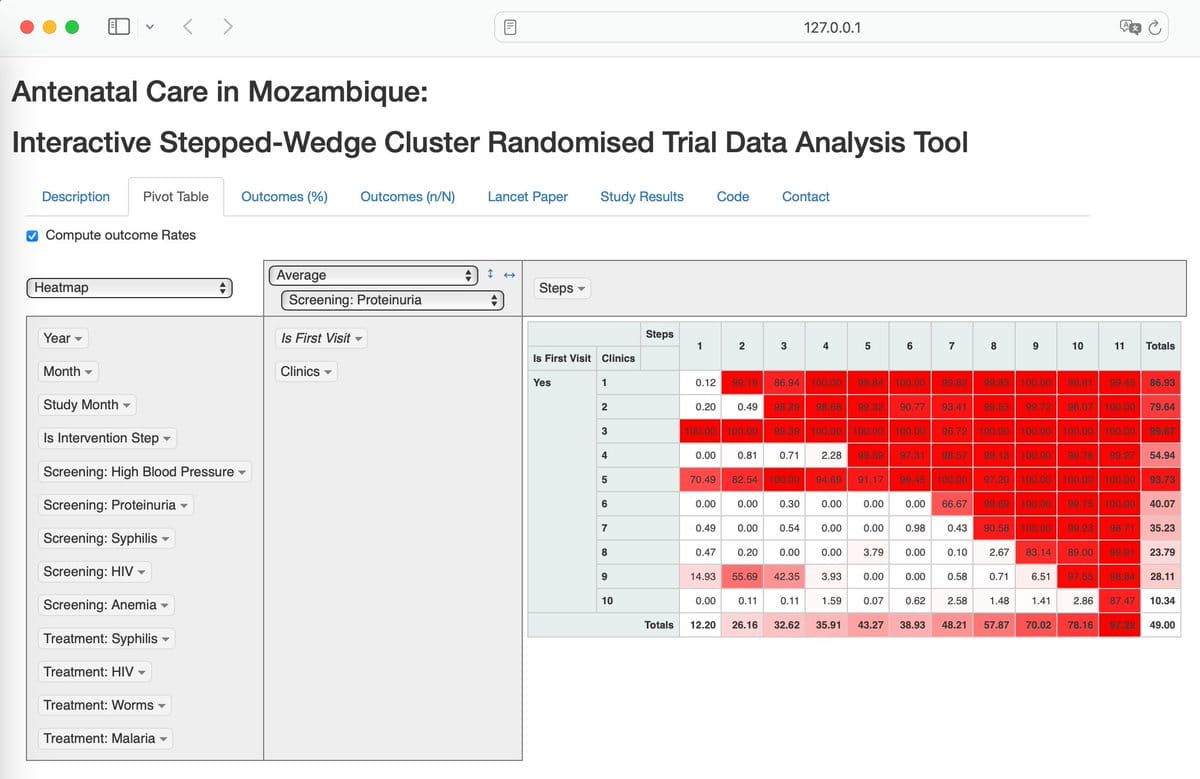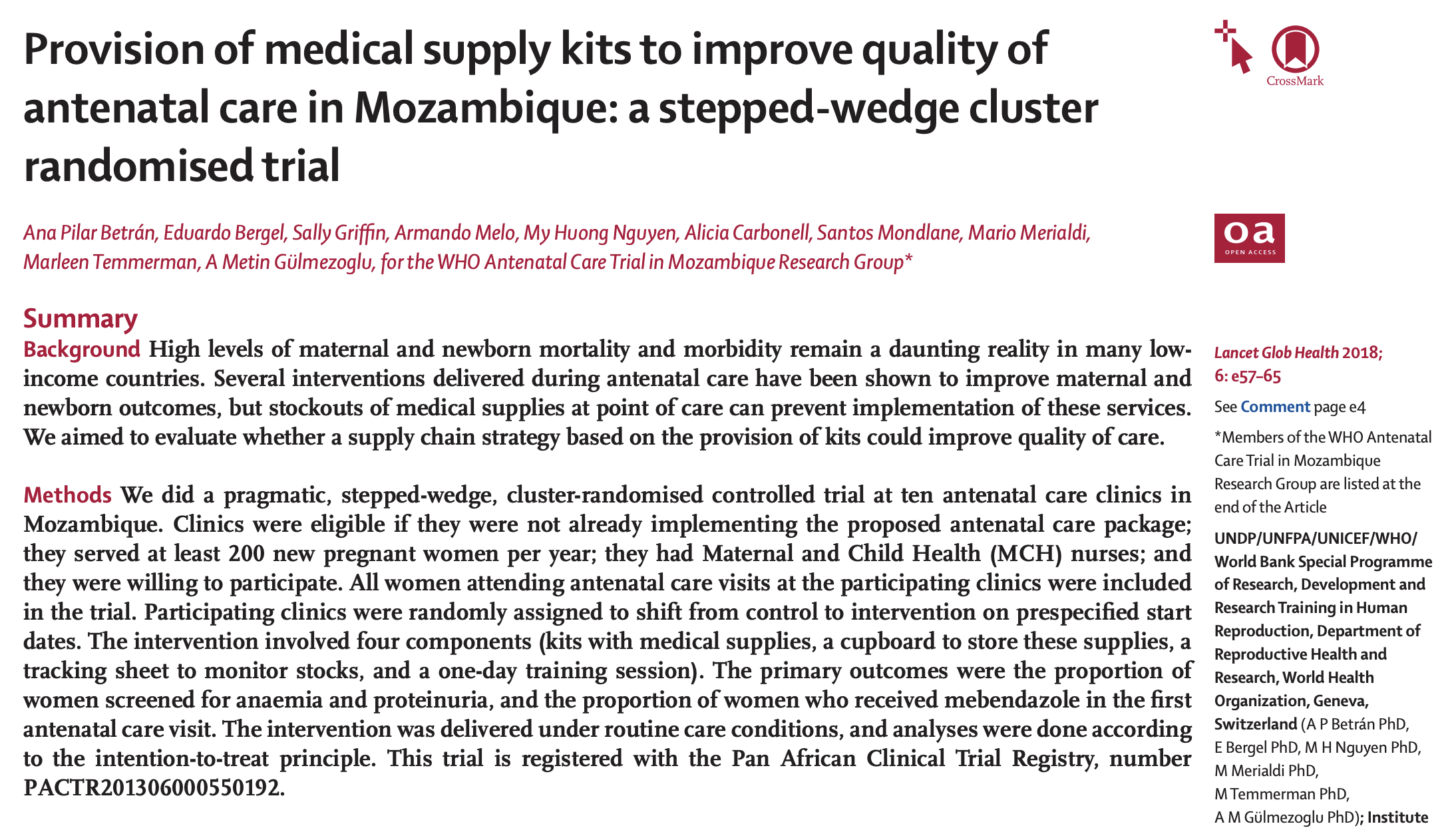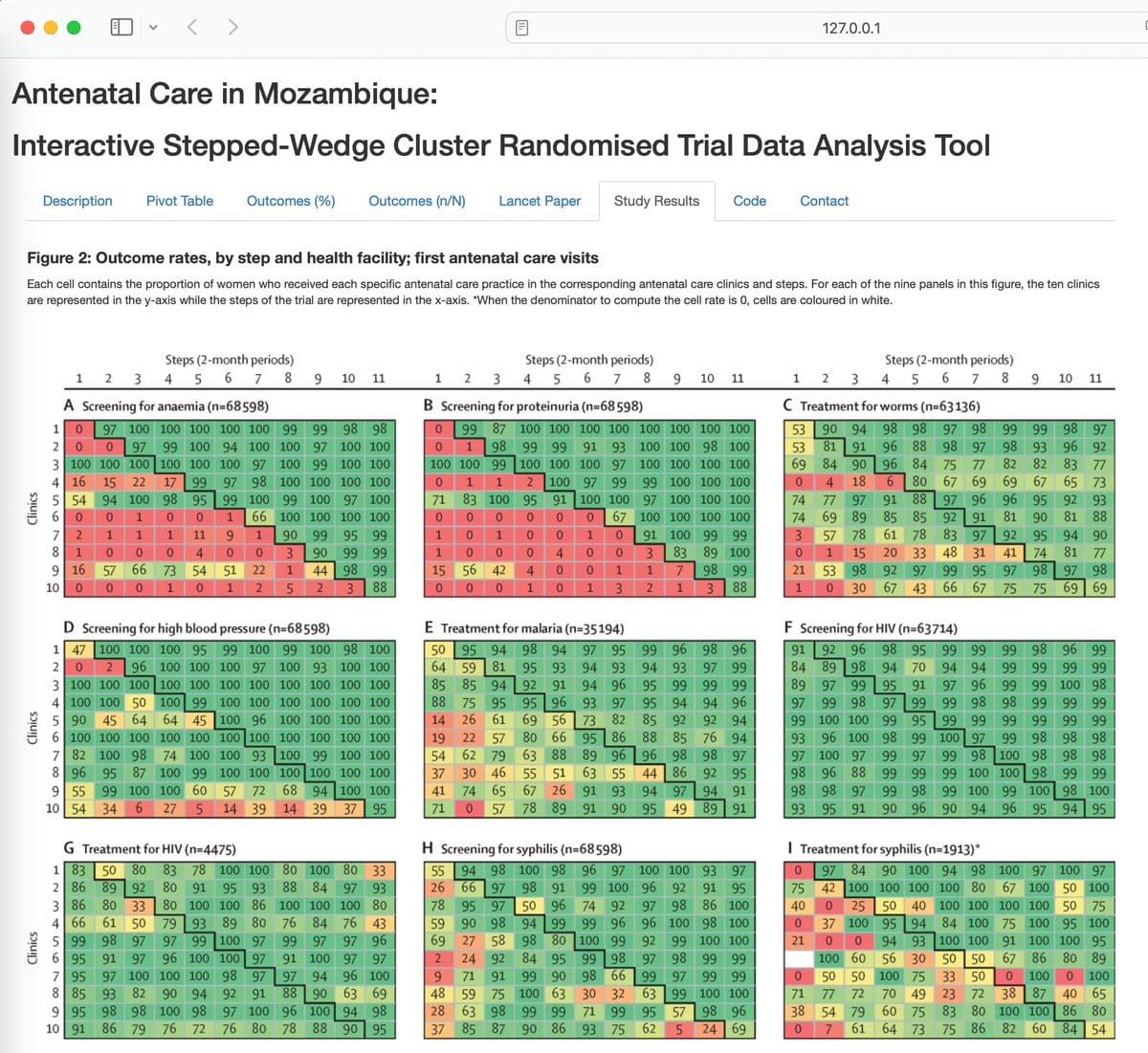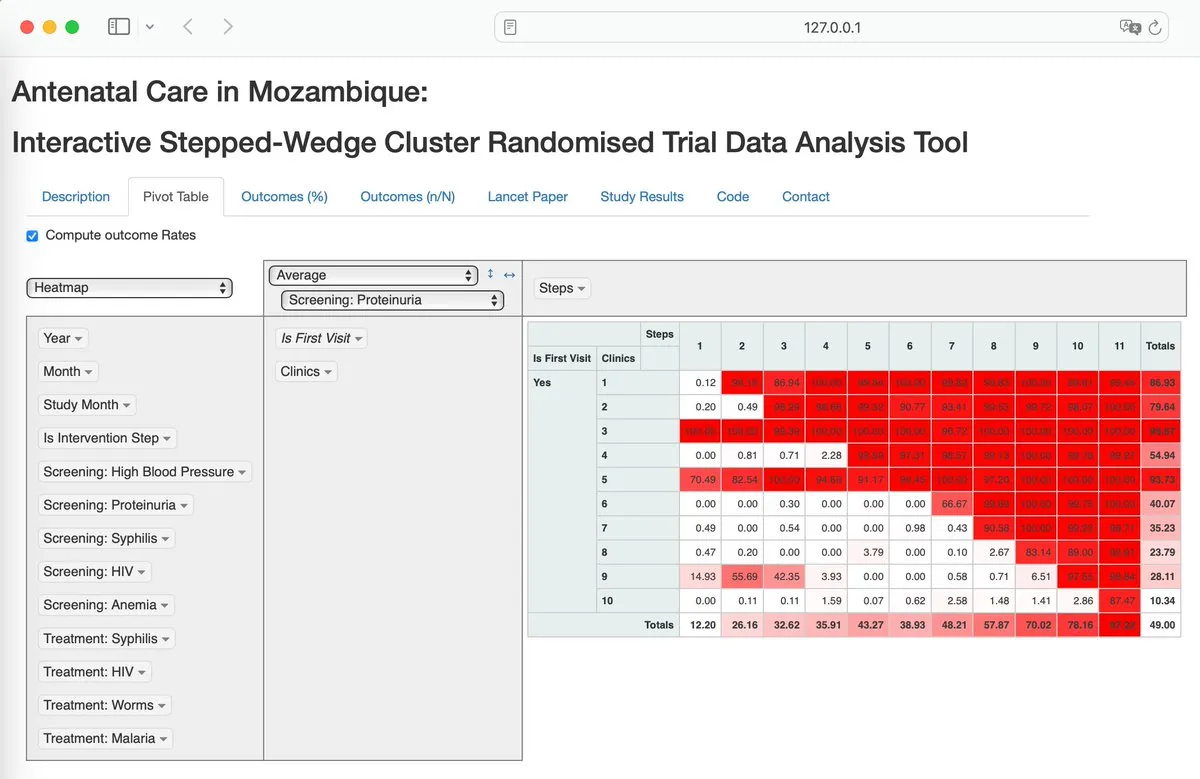Peer Review Lancet Global Health Paper: Full Text
The Shiny App
R Shiny App at: https://ebergel.shinyapps.io/202407021245/
GitHub: https://github.com/ebergel/ANCMozambique…
Use the app to explore the trial data interactively through a pivot table widget, analyze outcome measures such as blood pressure, proteinuria, and syphilis testing rates without statistical or programming skills.
The app was developed to enhance scientific reproducibility by making the trial data accessible to researchers, practitioners, and policymakers.

The Lancet Trial
A supply chain strategy that resolves stockouts at point of care can result in a vast improvement in quality during antenatal care visits, when compared with the routine national process for procurement and distribution of supplies.
Between March, 2014, and January, 2016, 218,277 antenatal care visits were registered, with 68,598 first and 149679 follow-up visits, in the 10 largest antenatal care clinics in Mozambique, a Collaboration between Government of Flanders, the UNDP/UNFPA/UNICEF/WHO/World Bank Special Programme of Research, Development and Research Training in Human Reproduction and Mozambique Ministry of Health. This is the largest study ever conducted on Quality of Care During Pregnancy, in Africa.

Background
High levels of maternal and newborn mortality and morbidity remain a daunting reality in many low-income countries. Several interventions delivered during antenatal care have been shown to improve maternal and newborn outcomes, but stockouts of medical supplies at point of care can prevent implementation of these services. We aimed to evaluate whether a supply chain strategy based on the provision of kits could improve quality of care.
Methods
We did a pragmatic, stepped-wedge, cluster-randomised controlled trial at ten antenatal care clinics in Mozambique. Clinics were eligible if they were not already implementing the proposed antenatal care package; they served at least 200 new pregnant women per year; they had Maternal and Child Health (MCH) nurses; and they were willing to participate. All women attending antenatal care visits at the participating clinics were included in the trial. Participating clinics were randomly assigned to shift from control to intervention on prespecified start dates. The intervention involved four components (kits with medical supplies, a cupboard to store these supplies, a tracking sheet to monitor stocks, and a one-day training session). The primary outcomes were the proportion of women screened for anaemia and proteinuria, and the proportion of women who received mebendazole in the first antenatal care visit. The intervention was delivered under routine care conditions, and analyses were done according to the intention-to-treat principle. This trial is registered with the Pan African Clinical Trial Registry, number PACTR201306000550192.
Trial Results
Between March, 2014, and January, 2016, 218 277 antenatal care visits were registered, with 68 598 first and 149 679 follow-up visits. We found significant improvements in all three primary outcomes. In first visits, 5519 (14·6%) of 37 826 women were screened for anaemia in the control period, compared with 30 057 (97·7%) of 30 772 in the intervention period (adjusted odds ratio 832·40; 99% CI 666·81–1039·11; p<0·0001); 3739 (9·9%) of 37 826 women were screened for proteinuria in the control period, compared with 29 874 (97·1%) of 30 772 in the intervention period (1875·18; 1447·56–2429·11; p<0·0001); and 17 926 (51·4%) of 34 842 received mebendazole in the control period, compared with 24 960 (88·2%) of 28 294 in the intervention period (1·88; 1·70–2·09; p<0·0001). The effect was immediate and sustained over time, with negligible heterogeneity between sites.

Trial Funding
Government of Flanders and the UNDP/UNFPA/UNICEF/WHO/World Bank Special Programme of Research, Development and Research Training in Human Reproduction.







